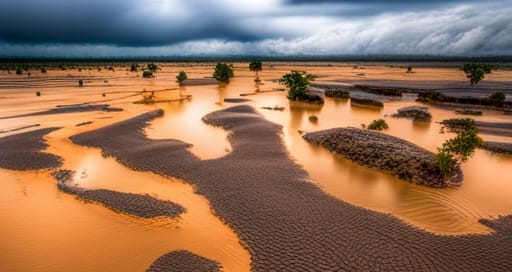More than 13,000 delegates are participating in the first-ever Africa Climate Summit, which is being held in Nairobi, Kenya. The primary objective of this groundbreaking event—a joint effort of the African Union (AU) and Kenya’s President William Rut—is to foster intra-African cooperation to combat climate change and find sustainable solutions without relying heavily on foreign partners for funding. Additionally, the summit presents a unique opportunity for renewable energy companies in Kenya, such as Kakuma Ventures and M-KOPA Solar, to explore financing options for clean energy projects.
Kakuma Ventures, a pioneering enterprise, aims to improve the lives of refugees and host communities by providing them with access to digital services, opportunities, and, most importantly, energy and internet connectivity for education, trade, and employment. Their efforts have manifested in the installation of solar panels and the establishment of Wi-Fi hotspots in the Kakuma refugee camp, home to a rapidly growing population of 200,000 individuals.
On the other hand, M-KOPA Solar has emerged as a leading pay-as-you-go solar energy provider, connecting over 1 million homes in East Africa to clean, renewable power. Their innovative approach has empowered low-income households to access affordable and reliable electricity, reducing reliance on traditional fossil fuel-based sources and contributing to a greener future for the region.
The Africa Climate Summit is also crucial for another reason. It seeks to address the continent's "climate blind spots—the inadequate collection and forecasting of weather data in Africa. Despite its vast size—larger than China, India, and the United States combined, Africa has only 37 radar facilities for weather tracking, in stark contrast to Europe's 345 and North America's 291. This lack of data collection affects key development choices, such as when to plant crops or when to evacuate people in the event of natural disasters Having accurate weather data is fundamental for making informed choices that can save lives and protect livelihoods. Bridging the gap in weather forecasting capabilities will empower African countries to respond effectively to climate-related challenges and plan sustainable development strategies that account for the unique climatic conditions of the continent.
The Africa Climate Summit provides a platform for policymakers, scientists, business leaders, and civil society organizations to engage in meaningful discussions and forge alliances that can drive tangible change. The continent's diverse nations can learn from one another's experiences and pool resources to develop innovative solutions tailored to their specific contexts. This collective approach will not only strengthen climate resilience but will also enable Africa to harness its vast potential and emerge as a global leader in climate action.
What I am reading:
Does home ownership make us worse people?
A new study finds casual social interactions in big cities can help fight depression
Africa is responsible for only a fraction of global greenhouse gas emissions but is suffering disproportionately from climate change. This is harming food security, ecosystems and economies, fueling displacement and migration, and worsening the threat of conflict over dwindling resources. State of the Climate in Africa 2022




